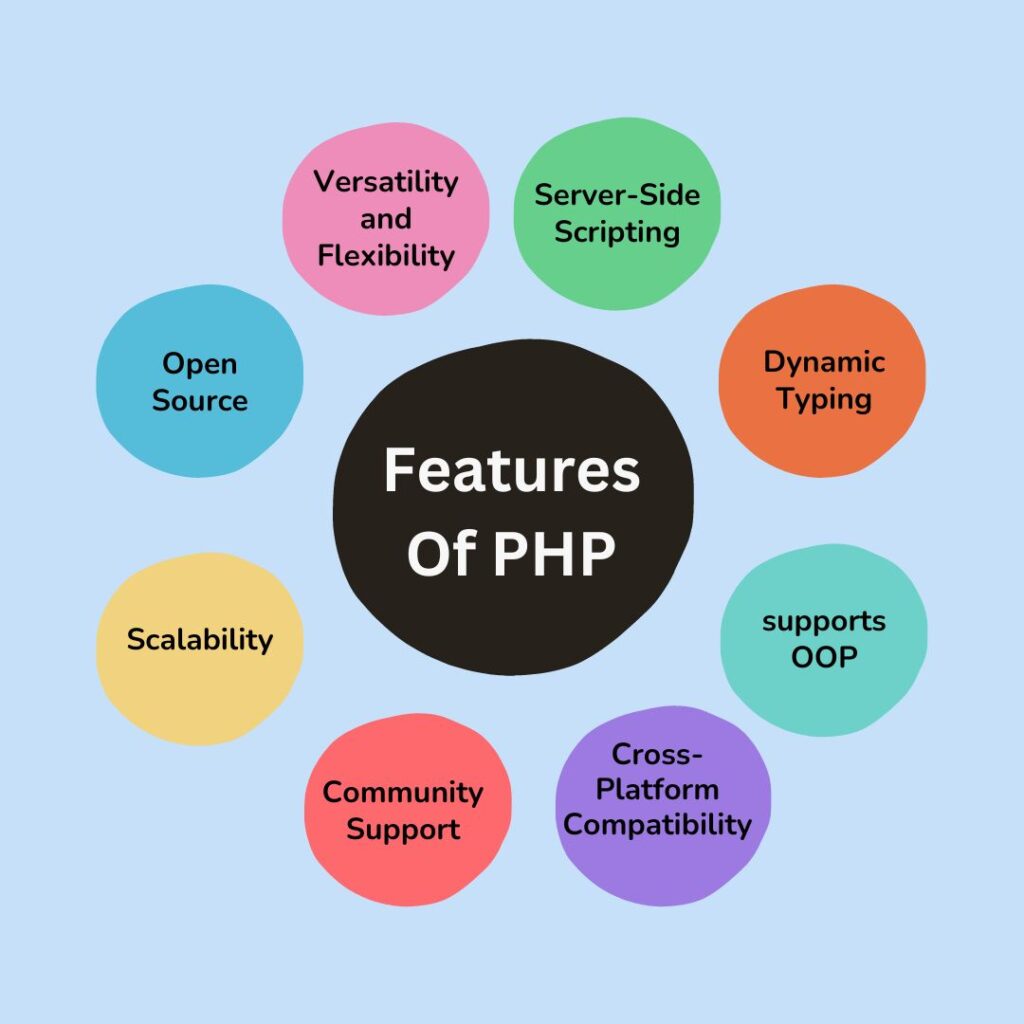Selecting a suitable programming language is essential in the wide world of web development if you want to build robust and efficient websites and applications. PHP, which stands for Hypertext Preprocessor, is a language that has weathered the test of time and remains a popular choice among many developers. However, why should you select PHP for your next web development project? Let’s explore the reasons why PHP is a popular programming language.
PHP is the most popular technology used for developing dynamic websites. There is always a need for this feature-rich technology. PHP provides a solid foundation for developers due to its simplicity and ease of learning, as well as its flexibility and compatibility with other databases. Because it is open-source, it supports an active community which constantly contributes to its development and growth. Let us now explore the key reasons that make PHP the preferred technology for developing effective websites.
Table of Contents
What is PHP?
“Hypertext Preprocessor,” or PHP, is a popular and flexible programming language used in web development. With PHP, developers can make web pages dynamic and interactive. Here’s a brief explanation:
Assume you have a website and want it to do more than show static content. You want it to respond to user input, get data from a database, and dynamically produce content. PHP helps in this case. PHP operates on the web server instead of the user’s browser since it is a server-side scripting language.
When a user visits a web page, the server’s PHP code processes the request and creates HTML, which the user’s browser receives and displays. In simple terms, PHP allows you to make your website more dynamic. It can handle forms, manage user sessions, connect to databases to get or store data, and do other functions that make webpages more dynamic and responsive. It’s an effective tool for web developers to design interactive, feature-rich websites.

Advantages of Choosing PHP
1. Ease of Learning:
PHP is known for its simplicity and ease of learning, making it suitable for beginners. The syntax is similar to other programming languages, which makes it easier for developers to switch.
2. Open Source and Cost-Effective:
PHP is free to use and has source code available for developers to customise since it is open-source. Due to this, it is a cost-effective choice for new and small companies.
3. Versatility and Flexibility:
PHP is flexible, allowing developers to create various online applications, from basic websites to big business solutions. It supports a variety of databases, allowing you to choose the best one for your project.
4. Community Support:
PHP has a large and active community. This community offers assistance and fixes for common problems through forum posts, discussions, and the development of libraries and frameworks. Community-driven development provides updates, security fixes, and ongoing improvement.
5. Frameworks for Rapid Development:
PHP frameworks like Laravel, Symfony, and CodeIgniter make development easier and faster by offering pre-built modules and functionality.
6. Server-Side Scripting:
The primary use of PHP is server-side scripting. It enables the development of dynamic content by running on the web server, processing the code, and sending the results to the user’s browser.
7. Cross-Platform Compatibility:
PHP is compatible across platforms and operates on various operating systems, such as Windows, Linux, and macOS. Several web servers can host applications developed in PHP.
8. Scalability and Performance:
PHP is best for both small projects and large-scale corporate systems due to its potent scalability.
PHP can provide effective performance using caching and optimizations.
9. Support for Object-Oriented Programming (OOP):
PHP supports object-oriented programming concepts, which enables programmers to structure, reuse, and maintain their code more effectively. OOP makes it easier to create modular, structured code.
10. Large Codebase and Existing Libraries:
PHP has an extensive source of libraries and extensions, which saves development time. Many well-known content management systems (CMS) and frameworks, including WordPress and Drupal, are created with PHP.
